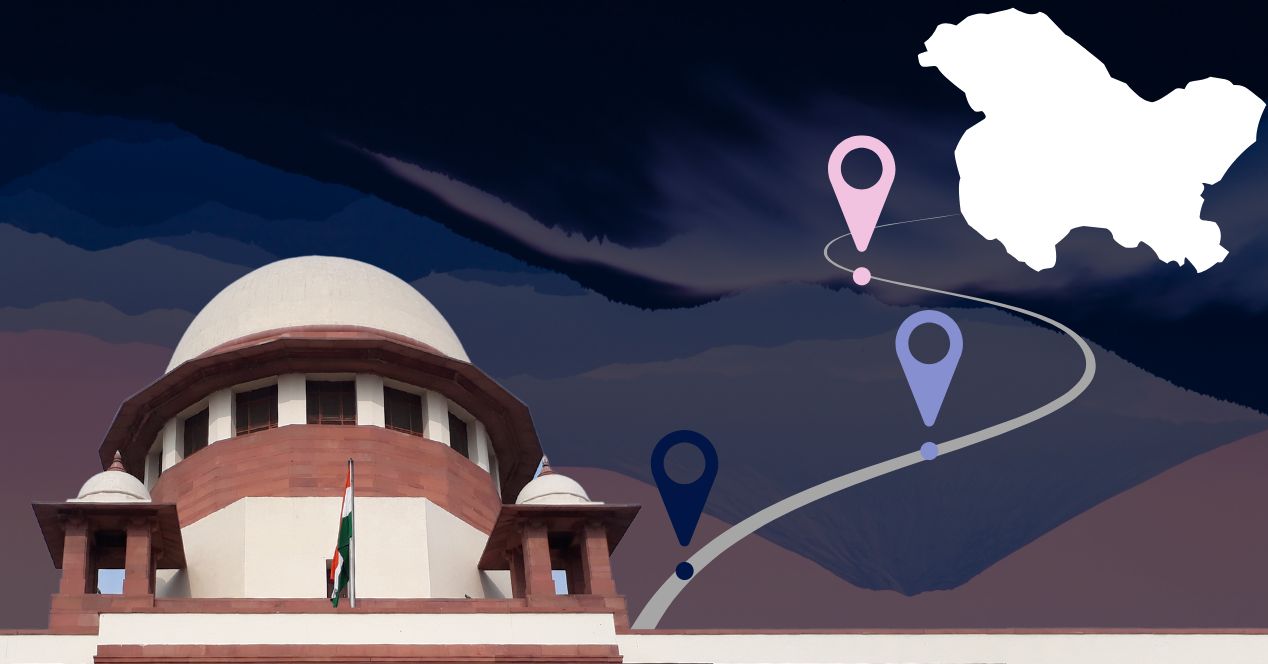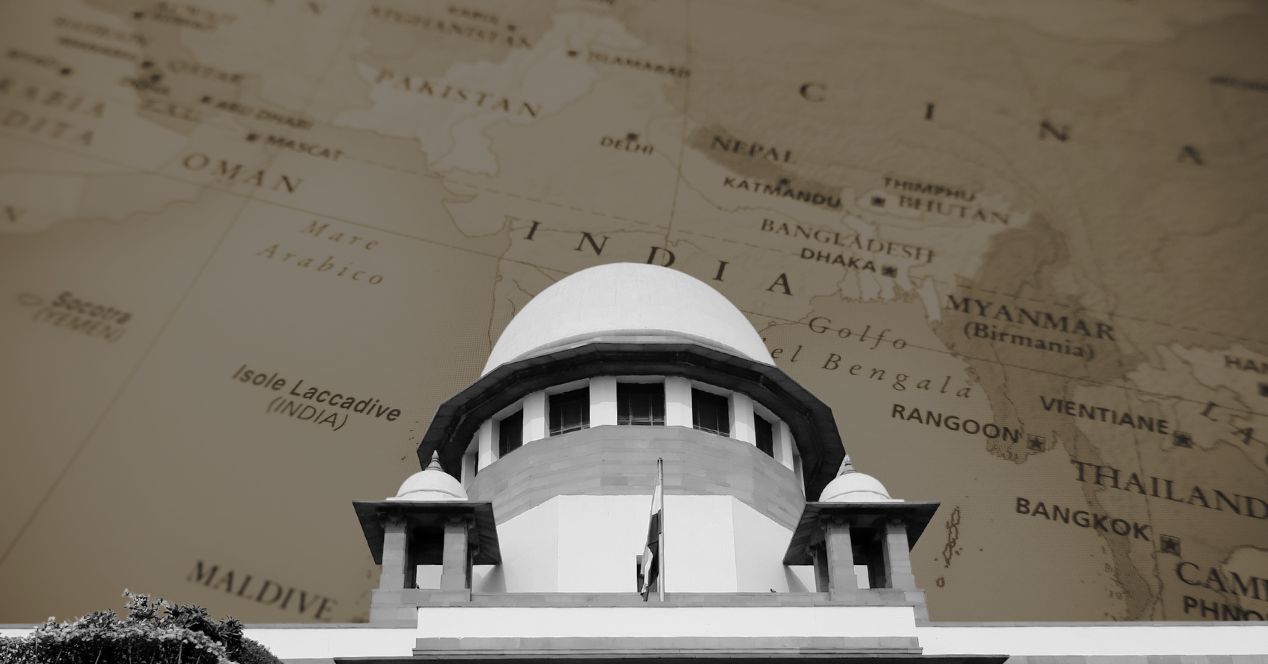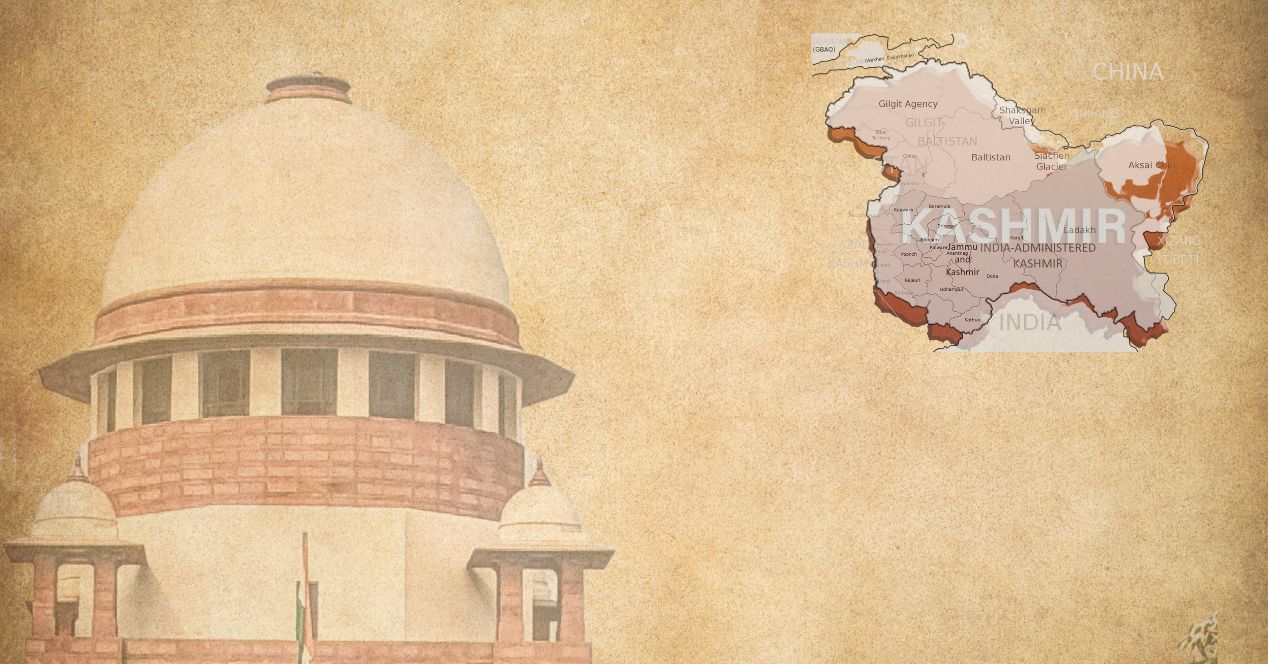Channel
Supreme Court Hears Challenge to Abrogation of Article 370 | Day 1
Senior Advocate Kapil Sibal argued abrogation of Art. 370 cannot be done following the dissolution of the J&K Constituent Assembly in 1957.
Hello and welcome to SCO Daily! The first day of the arguments in the challenge to abrogation of Article 370 began today, and here’s a breakdown of all the key points made.
Senior Advocate Kapil Sibal began the day’s hearings, reminding us all that this was indeed a historic moment. The five-Judge bench of the Supreme Court comprising the Court’s senior-most judges—Chief Justice D.Y Chandrachud, Justices SK Kaul, Sanjiv Khanna, B.R. Gavai and Surya Kant would be ‘analysing history’.
Sibal’s focus today was on the political background of Article 370. He took the Court through a comprehensive list of dates beginning from pre-independent India when Kashmir became a princely state, moving to 1947 when its erstwhile ruler Maharaja Hari Singh acceded the State to India after partition.
Using the letter written by Maharaja Hari Singh to Lord Mountbatten, Sibal demonstrated that the king wanted to remain independent but was forced to consider acceding to India due to the Pakistani invasion of the state. Unable to ensure the security of his people, the Maharaja agreed to accede in exchange for India’s military protection, with conditions on the extent of power that the Indian Union would exercise over Jammu and Kashmir. India’s power over the State would be limited to laws on defence, foreign affairs and communications. Therefore, the instrument of accession and Article 370 came to be.
Sibal then argued that the core intent of both the Maharaja and the Constituent Assembly was to ensure that the will and aspirations of the people of J&KJammu and Kashmir were duly taken into account in deciding the sovereignty of the state. Thus, the constitution framers and the Maharaja agreed to the elaborate political exercise of forming a constituent assembly for J&K ammu and Kashmir that would be tasked with framing a constitution, especially for the State. He further argued that this meant that only the Constituent Assembly of J&Kammu and Kashmir had the power to abrogate Article 370. This argument led to the one key point made in the day’s hearing—the Constitution framers meant to vest the power of abrogating article 370 ONLY to the Constituent Assembly of Jammu Kashmir. Now, as they did not abrogate, that is, repeal the provision before they dissolved in 1957, no other entity could repeal Article 370. This made it a permanent feature of the Constitution
This point launched a series of long and engaged discussions between the Bench and Mr. Sibal, on what the Constitution framers envisaged with Article 370. The proviso to Article 370(3) which specifically concerns abrogation states that the recommendation of the Constituent Assembly to the president was crucial to begin the process of repealing 370. Sibal’s argument that as there was no longer a Constituent Assembly, the President could not repeal the provision seemed to shock the Bench. They resisted Mr. Sibal’s argument that Article 370 can never be abrogated and pushed back, stating that simply because the condition mentioned in the proviso was gone, it didn’t mean that abrogation itself was not possible. The substantive part of the provision—which is that “the President may, by public notification, declare” Article 370 inoperative—remained. The Bench also pointed out that Article 370 was in a part of the Constitution, that is, part XXI, which specifically dealt with temporary, transitional and special provisions. So surely, the fact that our constitution framers put article 370 under this section meant that this was supposed to be a temporary provision.
Sibal presented a different view. The only reason the provision was called temporary was that it was subject to the review of the Constituent Assembly of Jammu and Kashmir who could decide to remove or modify it. When the Constituent Assembly dissolved in 1957, it chose not to remove Article 370. Sibal argued that after this point, it became a permanent feature of the Constitution.
Sibal referred to Constitutional Assembly debates where Gopalaswami Ayyangar stated that the recommendation of the Constituent Assembly was a ‘condition precedent’ for the President of India to abrogate Article 370. A passionate Mr. Sibal pointed out that “one fine morning” without the consent of the people of Jammu and Kashmir, Article 370 was “tossed out”.
Sibal emphasised that Jammu and Kashmir’s accession to India was dependent on the ‘will of the people of Kashmir’. By abrogating Article 370 without any dialogue with the people of Kashmir, the Union breached a constitutional framework. In a charge aside, he stated that since the abrogation, the Union has promised several times that elections would be conducted in Jammu and Kashmir. Parliamentary elections were conducted, but state elections, which would create a truly representative government had not been conducted in the State.
Senior advocate Kapil Sibal will continue arguments tomorrow.



